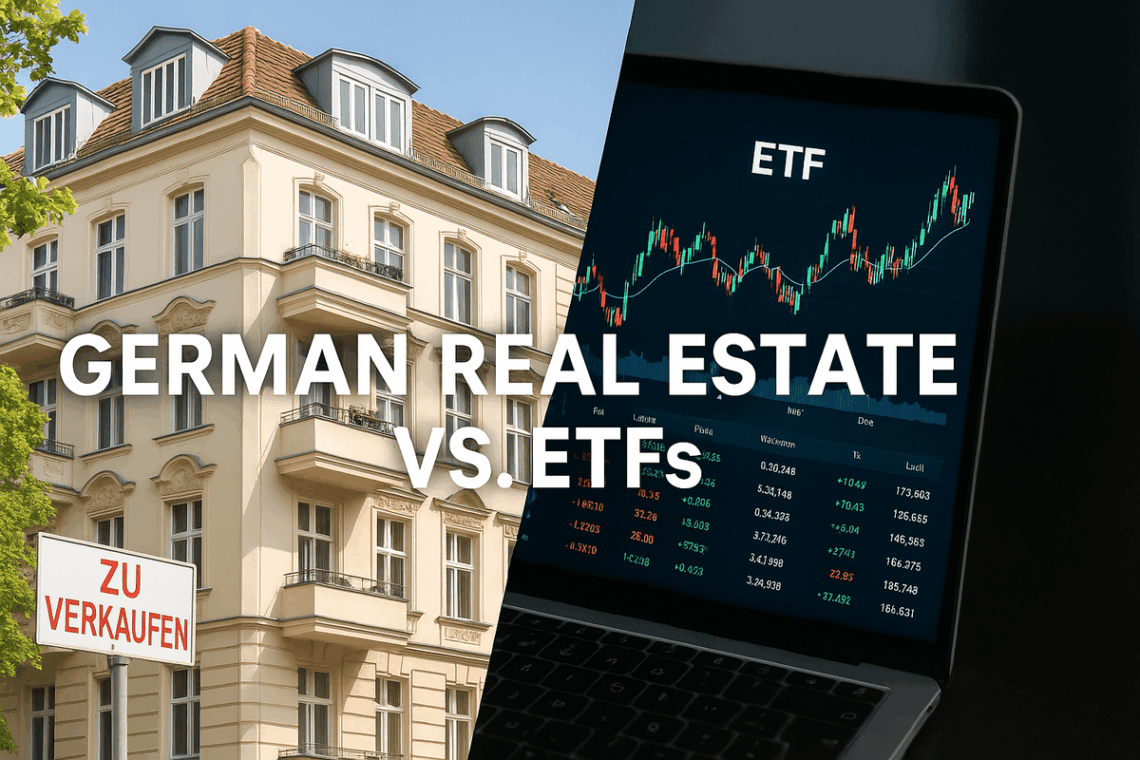As Germans become increasingly financially savvy, many face a key question: ETFs vs real estate investment in Germany – where should your money go in 2025? This head-to-head comparison helps you make a smarter decision.
The Contenders: What Are ETFs and Real Estate Investments?
ETFs (Exchange-Traded Funds) are baskets of stocks, bonds, or commodities traded like individual stocks. They offer diversification, low costs, and instant liquidity. Ideal for passive investors and fans of compound interest.
Real Estate Investments, on the other hand, involve purchasing property to earn rental income or profit from appreciation. It requires capital, upkeep, and sometimes nerves of steel when tenants call about a leaky faucet at 2 a.m.
Return on Investment (ROI)
- ETFs: Historical average returns hover around 6–8% annually for global index ETFs.
- Real Estate: Depending on location, German properties can yield 3–6% net. Appreciation and tax benefits like depreciation (AfA) can boost returns significantly.
Risk and Volatility
- ETFs: Highly liquid, but sensitive to market swings. Your wealth can drop 10% in a day—not great for the faint-hearted.
- Real Estate: Less volatile but illiquid. Crises (like COVID or interest rate hikes) can hammer prices or rental demand.
Taxation in Germany
- ETFs: Taxed on dividends and capital gains. Partial tax exemption (30%) for equity ETFs. Loss offset possible.
- Real Estate: Rental income is taxed, but depreciation (AfA) and loan interest deductions help. After 10 years, selling is capital gains tax-free.
Costs and Liquidity
- ETFs: Tiny fees (0.1–0.4%), easy to buy/sell within seconds.
- Real Estate: Purchase costs are massive: Grunderwerbsteuer (3.5–6.5%), notary, agent fees. Selling takes months.
Passive vs. Active Investment
- ETFs: Set and forget.
- Real Estate: DIY repairs, tenant management, financing headaches – or outsource to property managers at a cost.
KfW Loans and Subsidies
Real estate investors benefit from KfW programs, especially for energy-efficient renovations. These perks can substantially cut financing costs – a massive edge over ETFs.
Conclusion: ETFs vs Real Estate Investment Germany
If you crave liquidity, hands-off investing, and instant diversification, ETFs are your 2025 soulmate. But if you’re after leverage, tax perks, and a tangible asset you can touch (and curse at during renovations), real estate might be your champion. Choose wisely – or diversify and enjoy both worlds.
👉 Ready to explore real estate opportunities in Germany? Visit Immojourney.com and start your investment journey with expert tools, tips, and guides.





